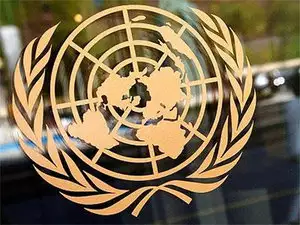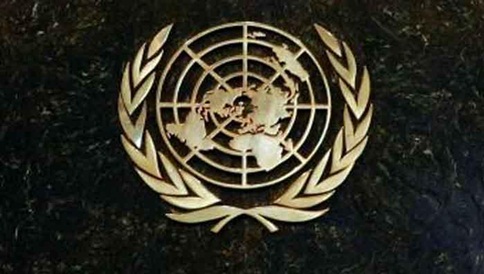 UNITED NATIONS: India’s longstanding innovation, the Jaipur Foot project, is being hailed as an “excellent” example of South-South cooperation and multi-stake holder collaboration as it has helped over 1.7 million persons with disabilities gain mobility in 34 countries.
UNITED NATIONS: India’s longstanding innovation, the Jaipur Foot project, is being hailed as an “excellent” example of South-South cooperation and multi-stake holder collaboration as it has helped over 1.7 million persons with disabilities gain mobility in 34 countries.
India’s Permanent Mission to the UN along with the Bhagwan Mahaveer Viklang Sahayata Samiti (BMVSS) in Jaipur organized a panel discussion here yesterday on the Jaipur Foot’s 50 year journey of helping people with disabilities across the world. Following the panel discussion, an exhibition on Jaipur Foot was also inaugurated in the UN Secretariat Building.
In India, a longstanding innovation has been the ‘Jaipur Foot’, popularized by Bhagwan Mahaveer Viklang Sahayata Samiti (BMVSS) and the organization has worked with over 1.7 million persons with disabilities in 34 countries across the world, India’s Permanent Representative to the UN Ambassador Syed Akbaruddin said at the discussion.
“The organization has now worked for half a century for this noble cause. While the technology behind such innovations has continued to improve, the ‘Jaipur Foot’ has provided much needed assistance to those who are among the most affected and those who have very limited resources to seek the kind of assistance that is needed by them. They truly are working to ensure no one is left behind,” Akbaruddin said.
Jagdish Dharamchand Koonjul, Permanent Representative of Mauritius to the UN, said that his country is proud to be associated with the work of Jaipur Foot in Mauritius and in the Indian Ocean Region.
“In 2014, the Jaipur Foot Project, which represents an excellent template for South-South cooperation and South-North cooperation, was launched in Mauritius to service the countries in the region,” he said.
Koonjul stressed that the Jaipur Foot Project is a fine example of multi-stakeholder partnerships involving governments, civil society and the private sector to realize the Sustainable Development Goals in Mauritius.
“Besides ensuring the transfer of much needed technology in the field, the project has fostered a strong partnership with local and international organizations and in the development of capacity building programs in education, health, social and economic integration and rehabilitation,” he said.
Koonjul told the audience at the panel discussion that in the Indian Ocean region, Jaipur Foot Mauritius has provided prosthesis free of cost to 1200 persons. In 2015, a 15-month old boy from Seychelles became the youngest beneficiary of the Jaipur Foot.
“We are proud of the journey covered by Jaipur Foot in Mauritius by giving a much-needed boost to the self-esteem of people and improving the quality of life of the differently abled persons. Jaipur Foot has empowered them to lead an independent and productive life,” he said.
Bharatiya Janata Party (BJP) National Vice President Vinay Sahasrabuddhe told PTI on the sidelines of the event that in today’s changing global circumstances, India is playing a very crucial and leading role, including in the rehabilitation of the different-abled people.
“Jaipur Foot has become a symbol of Indian society’s ability to empathize. Indian society definitely provides several avenues for cultivation of more empathic and sensitivity-oriented initiatives and Jaipur Foot is one of them,” Sahasrabuddhe said.
He said that it is a “great honor” for India to be taking a lead and initiative and to be seen as a nation that is working for the rescue and rehabilitation of those who are differently-abled.
Founder and Chief Patron of BMVSS Devendra Raj Mehta said Jaipur Foot is the “epitome of frugal” or Gandhian engineering, which involves doing the maximum with the minimum.
Mehta said his organization’s quest for improvement has led to collaborations with leading academic institutions across the world, including IITs, Stanford University and Massachusetts Institute of Technology.
Highlighting the cost effectiveness and affordability of the Jaipur Foot, Mehta said the artificial limb costs about USD 60 as compared to the about USD 15,000 price tag of other artificial limbs being provided in other nations.
On how the organization is able to make and provide the artificial limbs at affordable rates, Mehta said “high cost of prosthetic is not justified socially”.
Mehta said that his organization is partnering with the Santa Clara University on developing a prosthetic known as the myelectric hand. A major research project on below-elbow artificial hand is also underway in Stanford University in collaboration with BMVSS. The model is likely to be functionally more efficient and inexpensive.
Prakash Bhandari, member of the Executive Committee and Media adviser Jaipur Foot, said the focus is on building a smart hand that is low on cost. He added that now 5,000 people every year across foreign nations would be provided with assistance from Jaipur Foot, starting with Vietnam, Bangladesh, Myanmar and Iraq.
Addressing the gathering, Permanent Representative of Colombia to the UN Maria Emma Mejia Velez also hailed Jaipur Foot’s contribution to South-South cooperation, saying the organization has played a crucial role in providing mobility to the differently-abled persons in her country.
She said 6 per cent of Colombia’s population has some sort of disability due to the conflict, civil war and impact of mines.
Iraq’s Permanent Representative to the UN Ambassador Mohammed Hussein Mohammed Bahr AlUloom voiced appreciation that Jaipur Foot helped shape a better future for the disabled people across the world. He said there are about 25 million unexploded landmines and IEDs in Iraq and his country is still facing tremendous challenges in removing them.
Bangladesh’s Ambassador to the UN Masud Bin Momen also appreciated that Jaipur Foot is soon opening a centre in his country, saying that 160 million people will be potential beneficiaries of the organization’s work.
Sri Lanka’s UN envoy Amrith Rohan Perera paid tributes to the work done by BMVSS and for reaching out to his country “at a time when we were confronted with a long conflict”. PTI







